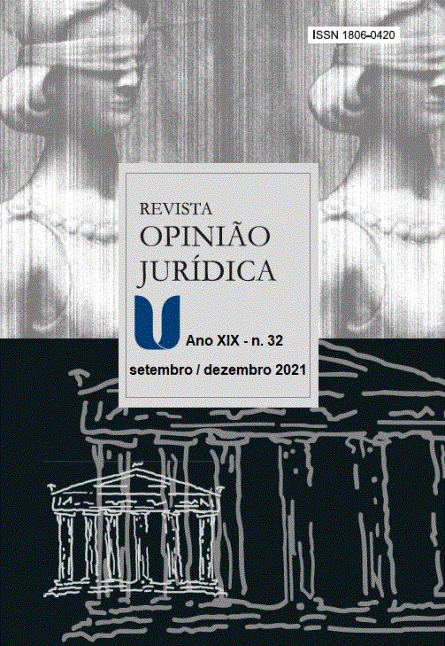INDEPENDENCE OF THE JUDICIARY ACCORDING TO THE CONSTITUTIONAL JUDGES? A CONCEPTUAL ANALYSIS BASED ON BRAZILIAN SUPREME FEDERAL COURT AND COLOMBIAN CONSTITUTIONAL COURT
DOI:
https://doi.org/10.12662/2447-6641oj.v19i32.p228-266.2021Keywords:
Independence of the judiciary, Judicial autonomy, Constitutional Courts, Social rights, Judicial PowerAbstract
Objective: The objective of this article is to analyze the manner and form in which the Brazilian Federal Supreme Court and the Colombian Constitutional Court define, characterize or support judicial independence.
Methodology: A deductive, descriptive and comparative methodology is used, combined with an empirical jurisprudential research technique and indirect doctrinal and normative documentation.
Results: This paper concluded that: (1) Although there are common elements, there persists a concern about the competence attributed by the constitutional courts in the definition and understanding of judicial independence, being healthy to submit their understanding to the Constitution and the law, since the judge in his human condition is fallible; (2) Beyond understanding impartiality, objectivity and considering deliberation, direct participation of citizens in the decision-making process, as well as other instruments, may be a healthy and rational idea to mitigate the excessive judicial power; (3) The addressee of the guarantee of independence is society, but not only the one who has access and knowledge to justice, but everyone on equal terms; (4) Overcoming the position of the supremacy of the judiciary, Sieyès' theory of the negative principle of le pouvoir constituant, provides an analysis to the promotion of a constitutionalism that allows the other elected branches of government to make and execute their own decisions.
Contributions: The article elaborates on the morphology of judicial independence. Although it is usually identified as a generic principle, not for that reason less fundamental of the Social State of Law, the research contributes by diving into the depth of its implication as a principle, the meaning and sources of its generic invocation, its theoretical assumptions, its perspectives, the legitimacy of its addressees and holders. In general, on the limits, forms and structures, even more so when it is the constitutional courts themselves who invoke it, particularly the Colombian Constitutional Court and Brazilian Federal Supreme Court.
Downloads
Published
How to Cite
Issue
Section
License
CESSION OF COPYRIGHTS
The submission of articles to analysis for publication on Opinião Jurídica implies the author(s) transfers copyrights to Centro Universitário Christus – UNICHRISTUS for reproduction, publicizing, distribution, printing and publication, according to the Publication Norm 414R, Opin. Jur., Fortaleza, year 12, n. 16, p.1-414, Jan./Dec. 2014, costs to be bore by UNICHRISTUS, in whatever format or means that may or shall exist, in accordance to articles 49 and following of Federal Law 9.610/98.
1. In ceding copyrights, the author(s) agrees to do so in exclusivity, free of charge and for the totality of the work.
2. UNICHRISTUS may make the work, in its entirety or in parts, available for scholarly purposes, without altering its contents, except for small corrections that are deemed necessary.
3. The cession of copyrights is valid in all countries and for versions of the material in its original language or translated into a foreign language.
RESPONSIBILITY FOR THE CONTENT
By submitting an article, the author(s) declare to have sole responsibility for the content of the piece and is(are), therefore, responsible for any judicial or extrajudicial measures referring to it.
1. In case of joint authorship, all authors are considered collectively responsible, except when proved otherwise.


















